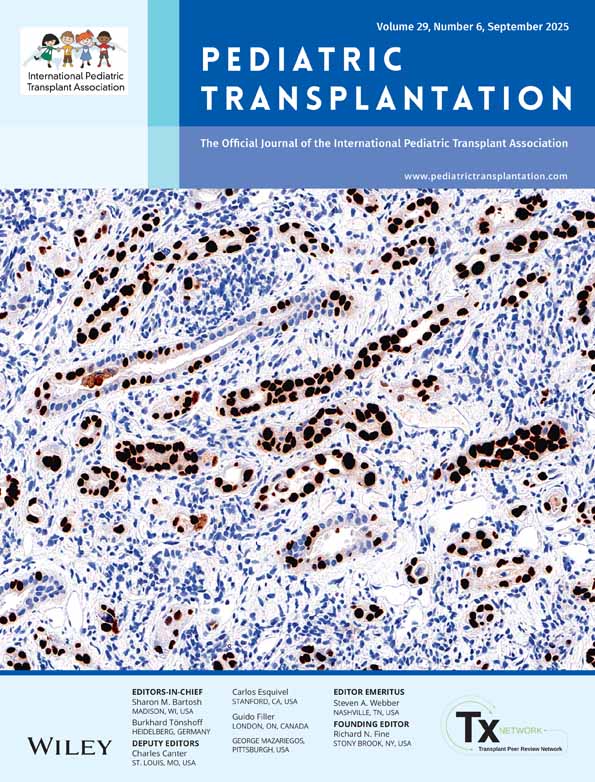The outcome of pediatric cadaveric renal transplantation in the UK and Eire
Abstract
Abstract: An analysis of all pediatric cadaveric renal transplant recipients in the UK and Eire was undertaken to review the outcomes of pediatric cadaveric renal transplantation and to consider the implications for organ allocation procedures for pediatric recipients. Factors influencing the outcome of 1,252 pediatric cadaveric renal transplants in the UK and Eire in the 10-yr period from 1 January 1986 to 31 December 1995 were analyzed by Cox proportional hazards regression, including analysis of four distinct post-transplant epochs (0–3 months, 3–12 months, 12–36 months, and beyond 36 months). At the time of analysis (December 2000), 113 (11%) recipients had died and 47% of grafts had failed. In the multi-factorial modelling, the factors significantly affecting transplant outcome were cold ischaemia time, donor and recipient age and human leucocyte antigen (HLA) matching. Epoch analysis demonstrated that these factors operated at different times post-transplant. Cold ischaemia time had a strong influence on outcome at 3 months. A highly significant increased risk of graft failure was associated with donors under 5 yr of age. Young recipients had an increased risk of failure in the short term, but beyond 1 yr post-transplant there were few failures in young recipients while a steady rate of graft loss persisted in the older children. In terms of HLA matching, the worst outcome was observed for two HLA-DR mismatched grafts, while 000 and favorably matched kidneys (100, 010, 110 HLA-A, -B, -DR mismatches) survived longest. Hence, a policy of exchanging organs on the basis of HLA matching is justified for 000 mismatched and favorably matched kidneys. The poor outcome associated with very young donors should discourage pediatric units from transplanting kidneys from such young donors. The reasons for late losses in older recipients need investigation.




